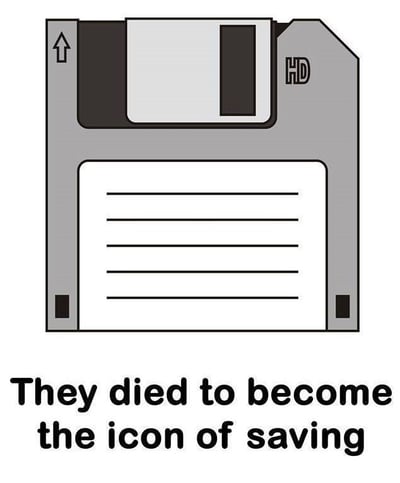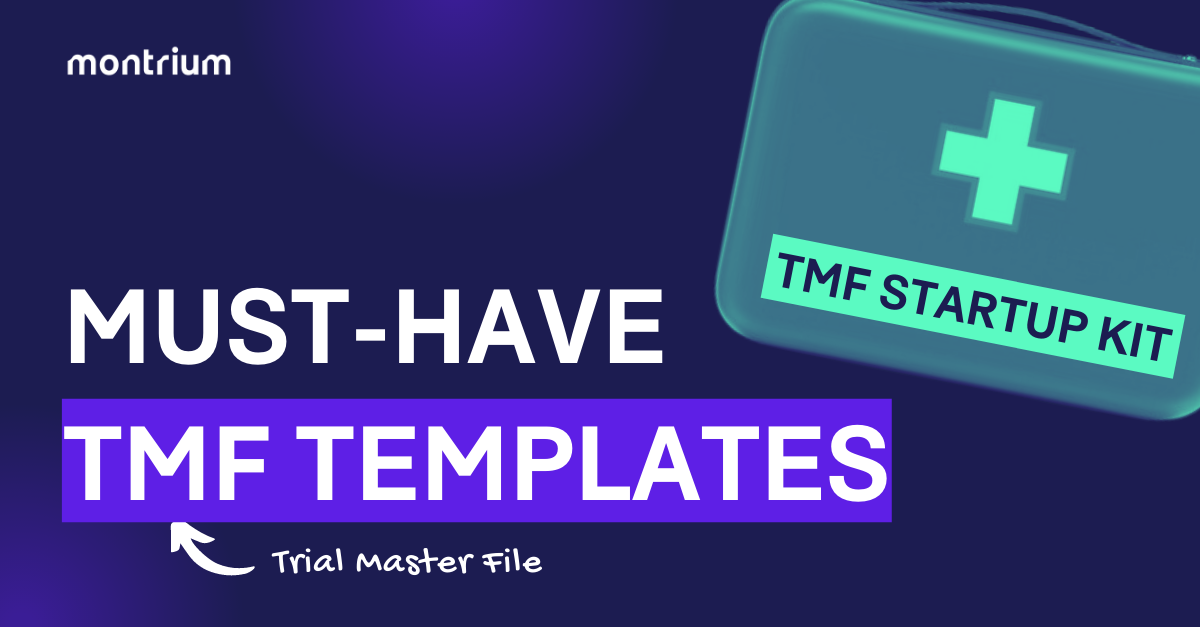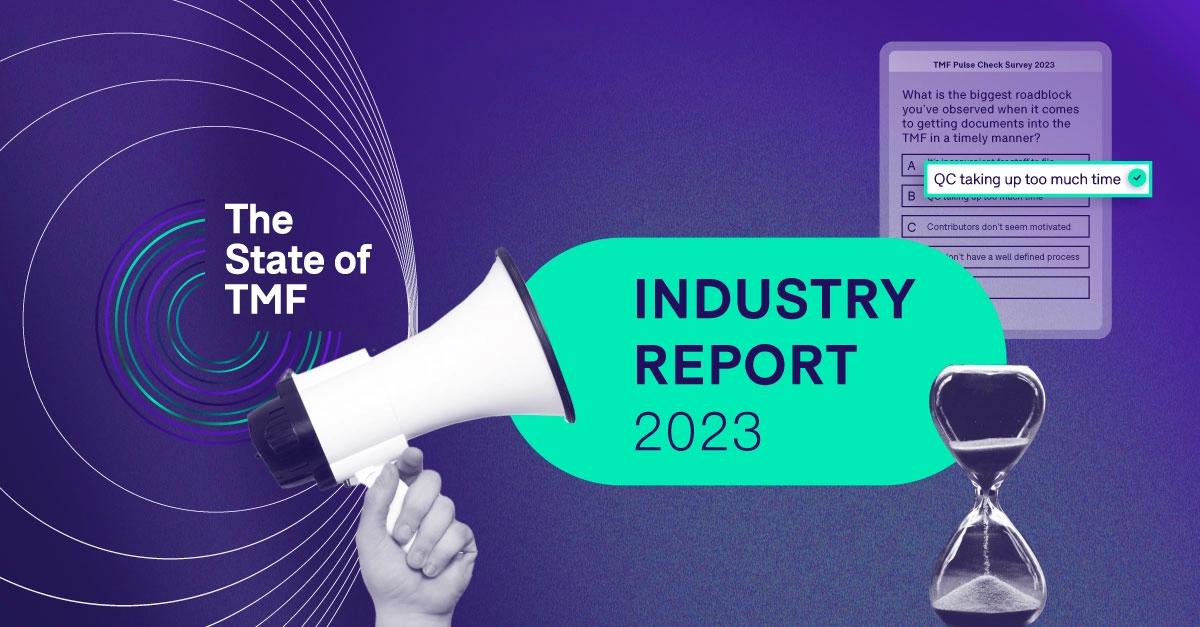-3.png)
It’s unlikely that Bob Dylan was writing about the trial master file in his 1964 hit song, “The Times They Are a-Changin". And yet, 59 years later, one could argue that it’s become a fitting anthem for the state of the industry.
The clinical trials landscape has evolved immensely over the past decade, propelled by new technologies, regulations, and ways of working. However, there are some aspects of TMF management that remain stubbornly fixed in the past, not least of which is how we conceive of TMF-related roles. For reasons which are not always apparent, TMF roles and jobs today continue to be defined based on the paper world.
But we no longer live in a paper world. Our current reality is an exceedingly digital one, with countless new systems and incredible amounts of data that we can access. The TMF has become increasingly real-time, just like our everyday lives—and regulators’ expectations. In such an instantaneous, interconnected world, it no longer makes sense to box TMF professionals into the roles of archivists. Instead, we need to start thinking about TMF roles as strategic positions that support active management of the TMF and the clinical trial process as a whole.
In this article, we'll be covering:
- The Past That Continues to Haunt Us: Paper TMF
- Ditch the Filing Cabinet: The TMF as a Clinical Process Management System
- Your New Digital Toolkit: Equipping TMF Managers for Success
- Final Thoughts: The Future of TMF Roles
Let's go!
1. The Past That Continues to Haunt Us: Paper TMF
Things looked a lot different when the trial master file officially entered the scene back in 1996. It was the same year that the DVD was first released, and email was just starting to pick up steam. Floppy disks were still widely used. Paper was still the medium on which the world was architected. Society was, for better or worse, a simpler time.

Fast forward to 2023. When was the last time you watched anything on a DVD? R.I.P Blockbuster. Email communications have given way to text messages, iMessages, Slack messages, Teams messages. Most people born today will never see a floppy disk, let alone know they existed outside of serving as the “save” icon on your computer. And paper? Well, it’s still around—but not out of necessity.
Back to the TMF. The concept of TMF is still largely based on the pre-Y2K paper-heavy world in which it emerged. And this is a big issue. We continue to define TMF roles and jobs the same way we did when we used VCRs and dial-up internet—and this simply doesn’t map to the virtual age.
The TMF of today should be thought of as a digital repository of information that needs to be actively managed and made available, and not just an archive. It’s a disconnect that leads to inefficiency, missed opportunity, and most importantly, inspection findings. To fix it, both TMF teams and the broader industry need to change their mindset from treating TMF roles as archivists to strategists who proactively manage data to ensure inspection readiness. But how can we initiate this shift?
2. Ditch the Filing Cabinet: The TMF as a Clinical Process Management System
In order to embrace the strategic destiny of TMF roles, we must first accept a central truth: the TMF is more than just a filing cabinet or a repository. It’s a clinical process management system. Yes, it’s the place where you store essential documents, but it’s also the place where you can find crucial information about the progress of your study and the quality of the data collected therein. In a paper-based TMF environment, trying to extract this information is like digging through your junk drawer to find that one old document you need for your taxes. When all of the valuable data collected from your study is siloed, it’s incredibly difficult to not only manage that information, but also to reconstruct events for inspectors and regulators.
Enter the clinical process management system. This comprehensive approach allows us to treat each study as what it truly is: a series of interconnected events, as opposed to thousands of individual, isolated pieces of paper. By leveraging the technology at our fingertips, we can employ data management techniques across the entire study to help clean the data, identify issues, and correct them well before an inspection. The result? A TMF that tells an accurate, easy-to-understand story of what really happened in the trial.

3. Your New Digital Toolkit: Equipping TMF Managers for Success
So, where do TMF professionals fall into this revamped and revitalized conception of study management? Well, certainly not as paper archivists. Instead, we need to begin designing TMF roles—and equipping the people occupying those roles—to be strategists, stewards of information who manage and analyze data to better inform the progress of a trial. And this transition starts with their tools.
A TMF manager is only as good as their tools. No matter how organized, experienced, and efficient you are, it’s near-impossible to overcome the constraints of a paper TMF environment when it comes to effectively managing a study. In order to truly advance, TMF managers need to be given access to systems that can support data collection and extraction, like an eTMF system. And these systems need to come equipped with features like edit checks and automated anomalies detection to allow TMF managers to maintain real-time control over the progress of the study and meet the real-time expectations of regulators.
With a robust digital toolkit, TMF managers will be able to take charge of processes and keep abreast of all the different stakeholders involved. This leads to drastically improved quality, decreased risk of non-compliance, and an all-around better inspection experience for staff and inspectors alike.
4. Final Thoughts: The Future of TMF Roles
The transition from archival roles to strategic roles is necessary for TMF teams to meet the increasing demands of regulators and the industry. By adopting a proactive approach to managing data, TMF teams can help improve the quality of clinical trials across the board and make the regulatory inspection process more efficient. With the growing complexity of studies and the amount of data generated, TMF teams have a critical role to play in ensuring a successful study. The time has come for TMF teams to embrace change, adapt to the digital world, and take a more proactive approach to data management to ensure success in the ever-evolving landscape of clinical trials.






-1.png)
.png)



.png)

-1.png)

